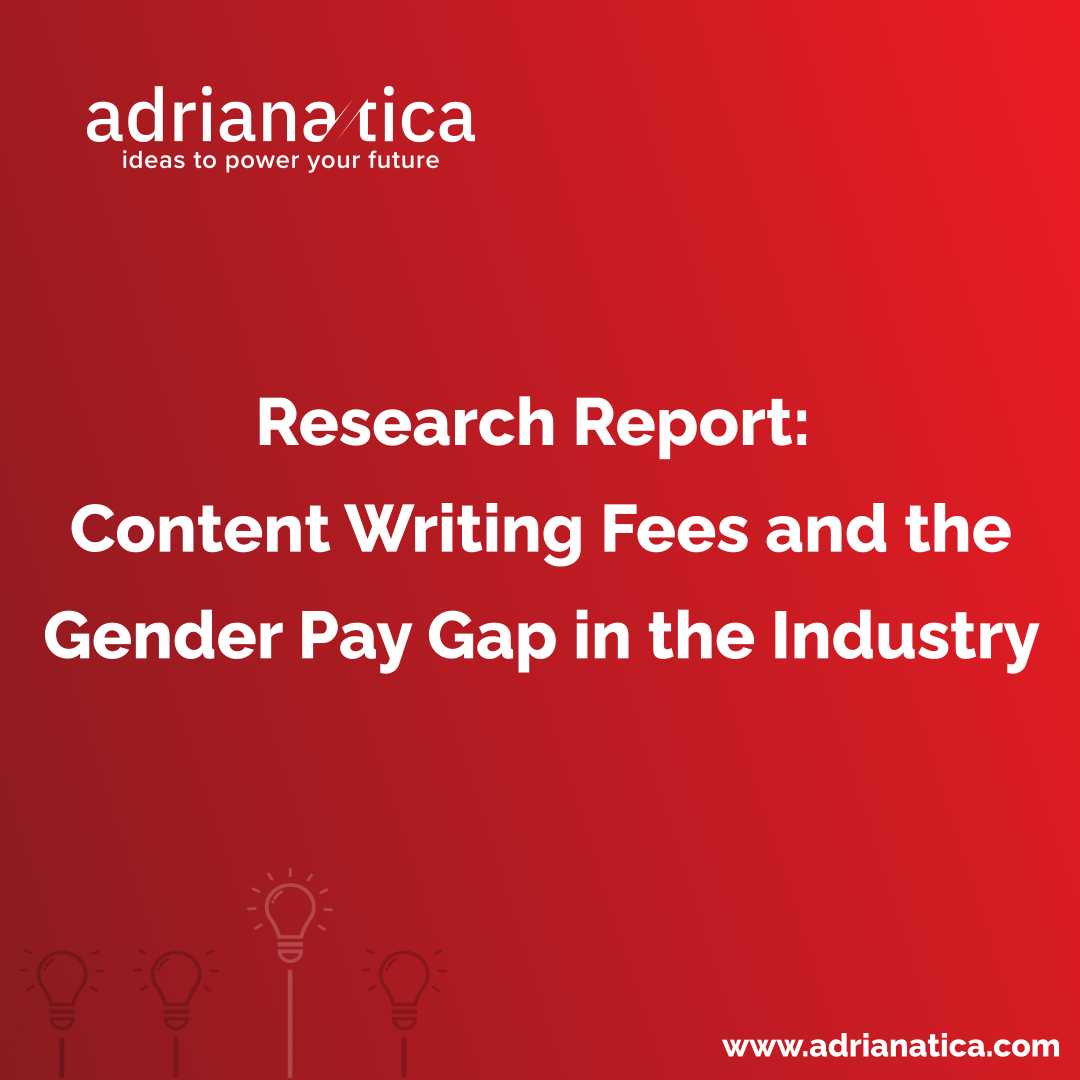
In the past few months, I’ve been looking for new writers to join my teams at Idunn and Copywritech. I do this regularly, but this is the first time I thought about compiling the data and putting together a report on content writing fees.
Psst! My subscribers read this article before anyone else. Are you on my list yet? If not, hop on to be the first to receive new articles. (BONUS: you’ll get my list of digital solutions to run your business completely free.)
Here’s what I found:
Content Writers Are Confident in Their Abilities
The job ad I posted asked applicants to self-assess their writing skills on a scale of one to ten. No one checked any of the boxes from one to five:
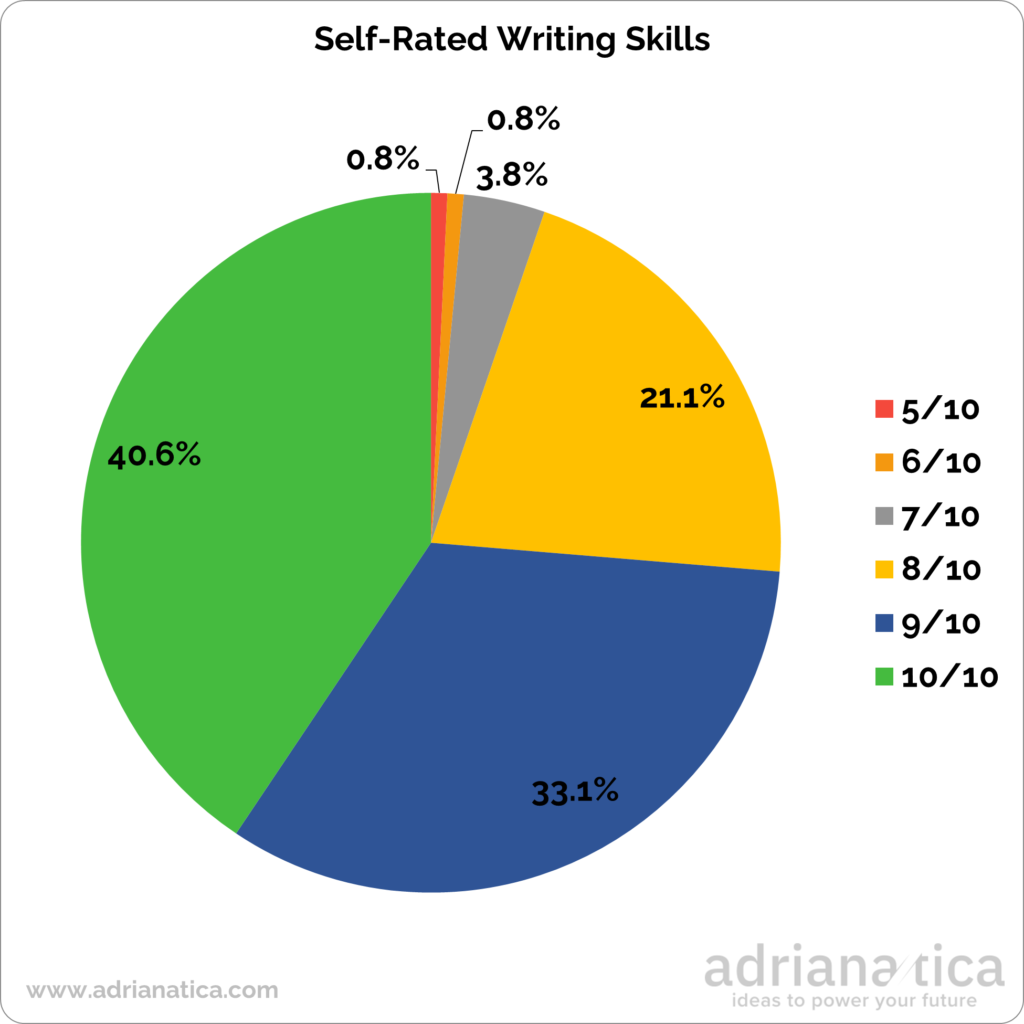
Nearly 95% of content writers have excellent, 8+ writing skills. Let’s see if and how this correlates with their experience level:
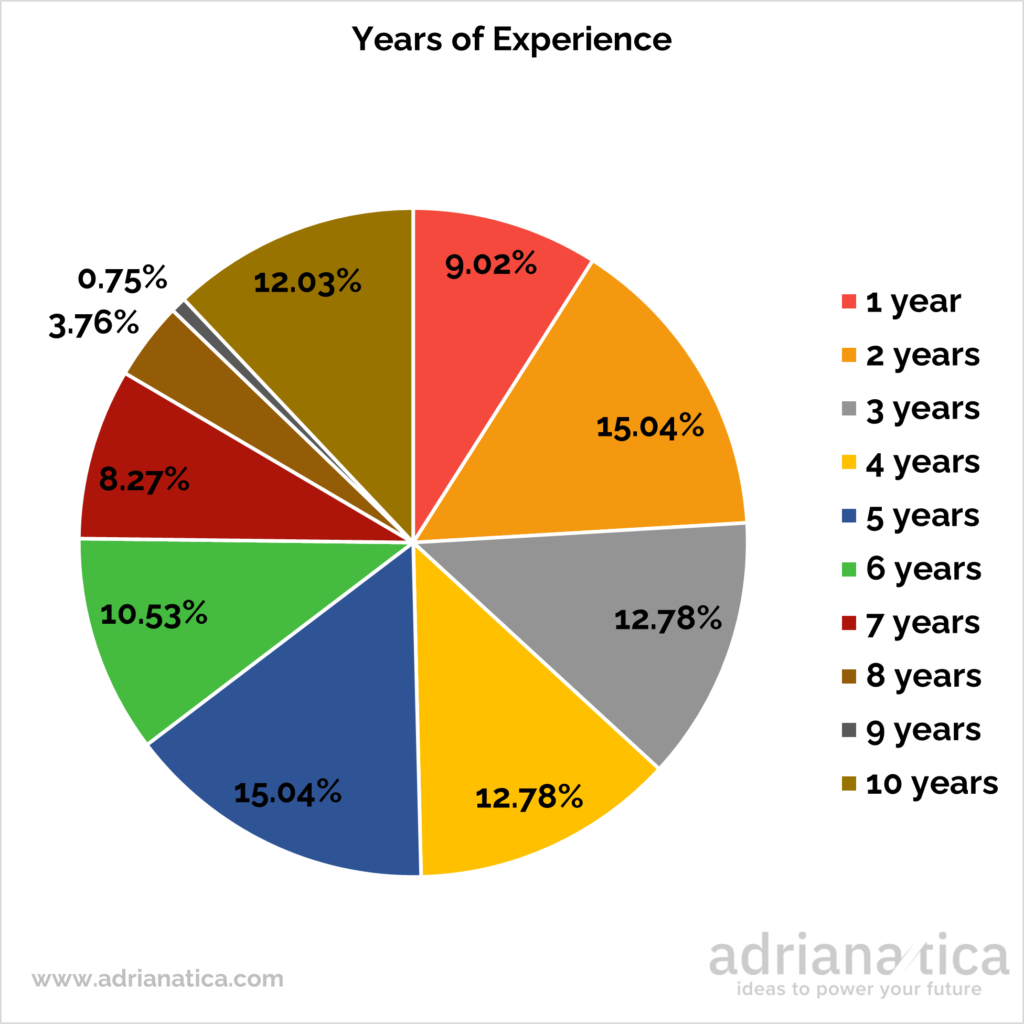
Less than 25% of the applicants have between eight and ten years of experience in content writing, yet almost all of them rate their writing skills as very strong. Should there be a direct correlation between the two?
Not really.
The level of experience isn’t always a good indicator of skills, work ethics, or knowledge. I’ve seen amazing writers with one year of experience in the field, so, if you’re looking to hire someone, give newbies a chance.
Content Writing Fees: How Much Do Content Writers Charge per 1000 Words
My job ad asked applicants for their fees per 1000 words. Why not per article?
I’ve found that what people consider an “article” can vary widely. 1000 words are the middle-ground between a short-form piece and a long-form one. It also makes it easier for me to assess which applicants match our budget.
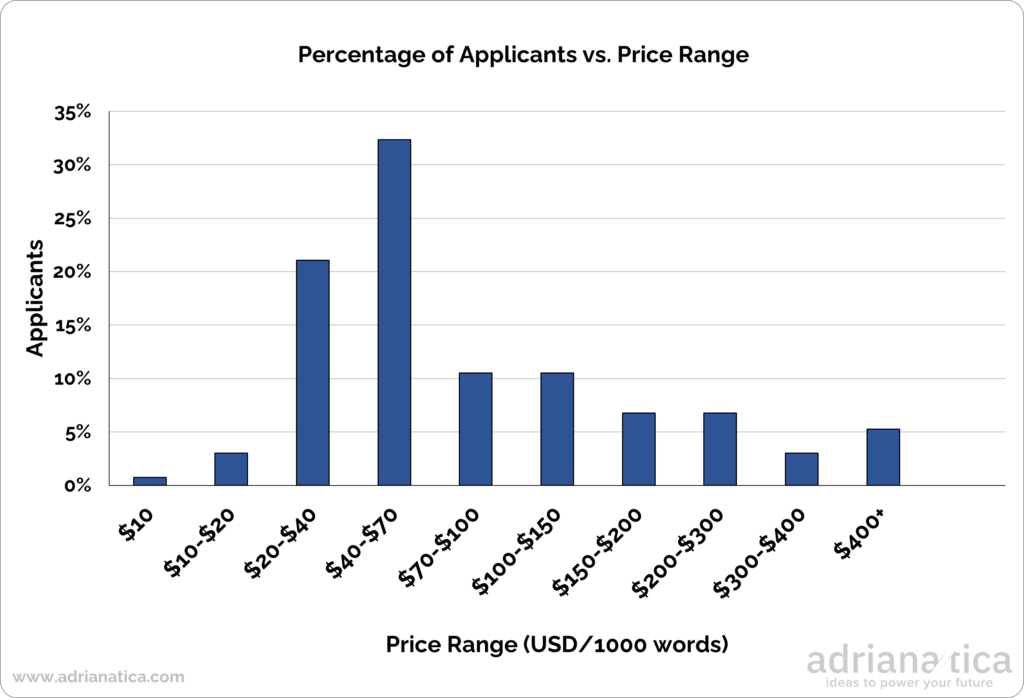
There are a few outliers here, including one applicant who typed in $1000. Since there were very few applicants charging above $400, I chose $400+ as the last interval.
Once again, the level of experience is not as strongly correlated with the writing fees as you might expect:
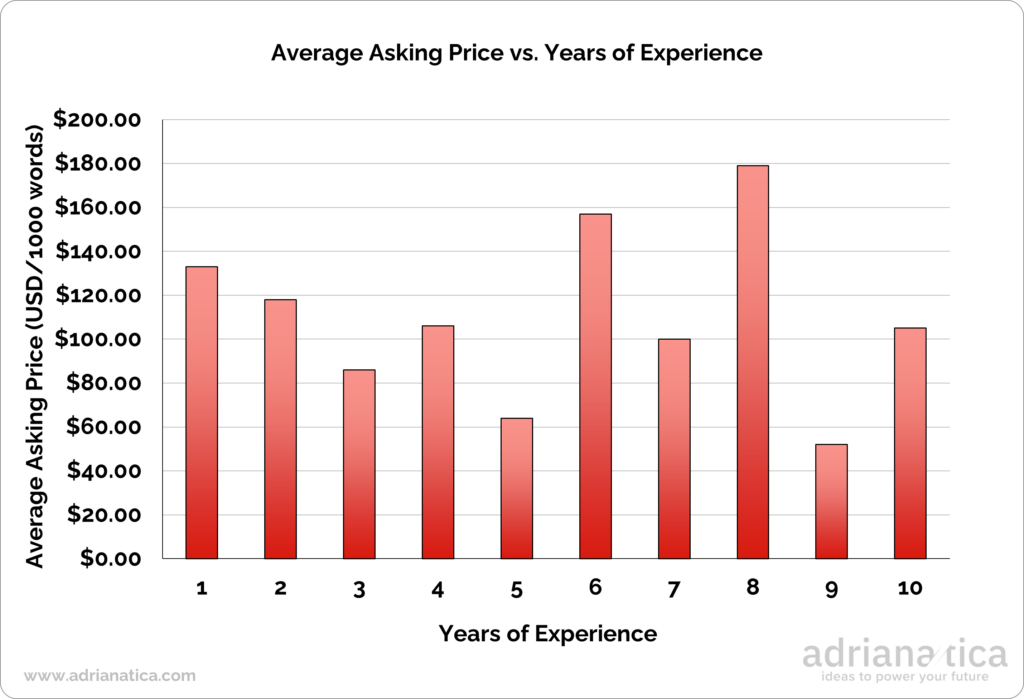
What I loved about this chart is the fact that content writers with one year of experience demand higher fees than those with four years. Beginner’s confidence is something I’ve always admired!
However, since our sample is far from huge, I think that the more relevant chart is the one below:
Content Writing Fees Increase with Experience
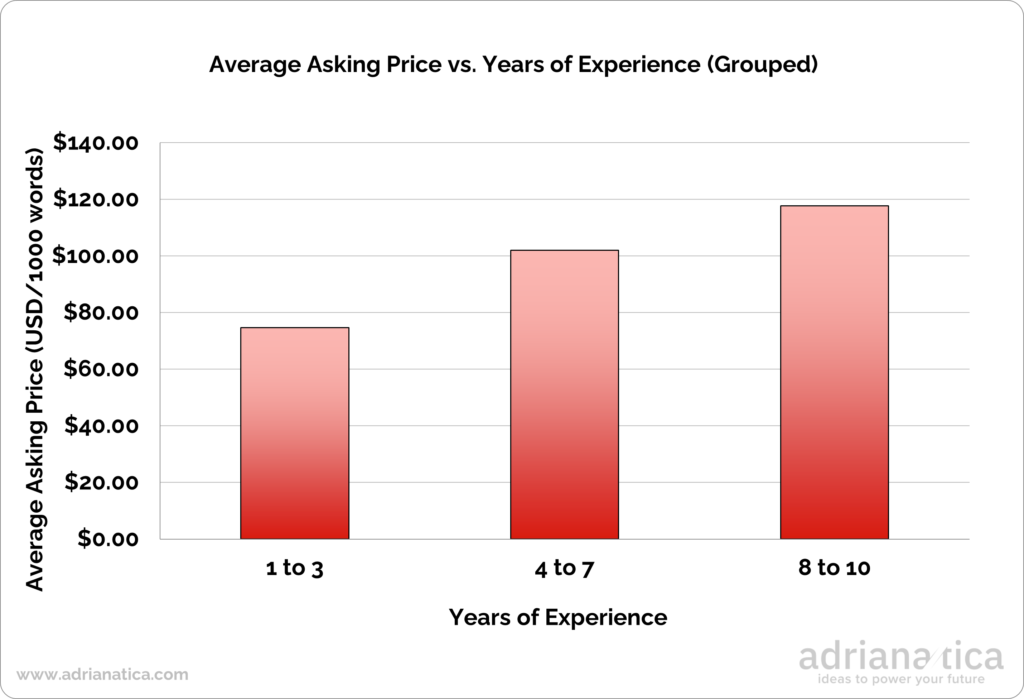
- Content writers with one to three years of experience have an average fee of $74.7 per 1000 words
- Content writers with four to seven years of experience have an average fee of $106.3 per 1000 words
- Content writers with eight to ten years of experience have an average fee of $117.7 per 1000 words
Is There a Gender Pay Gap in the Content Writing Industry?
To answer this question, we first need to look at the male-to-female ratio in our sample size:
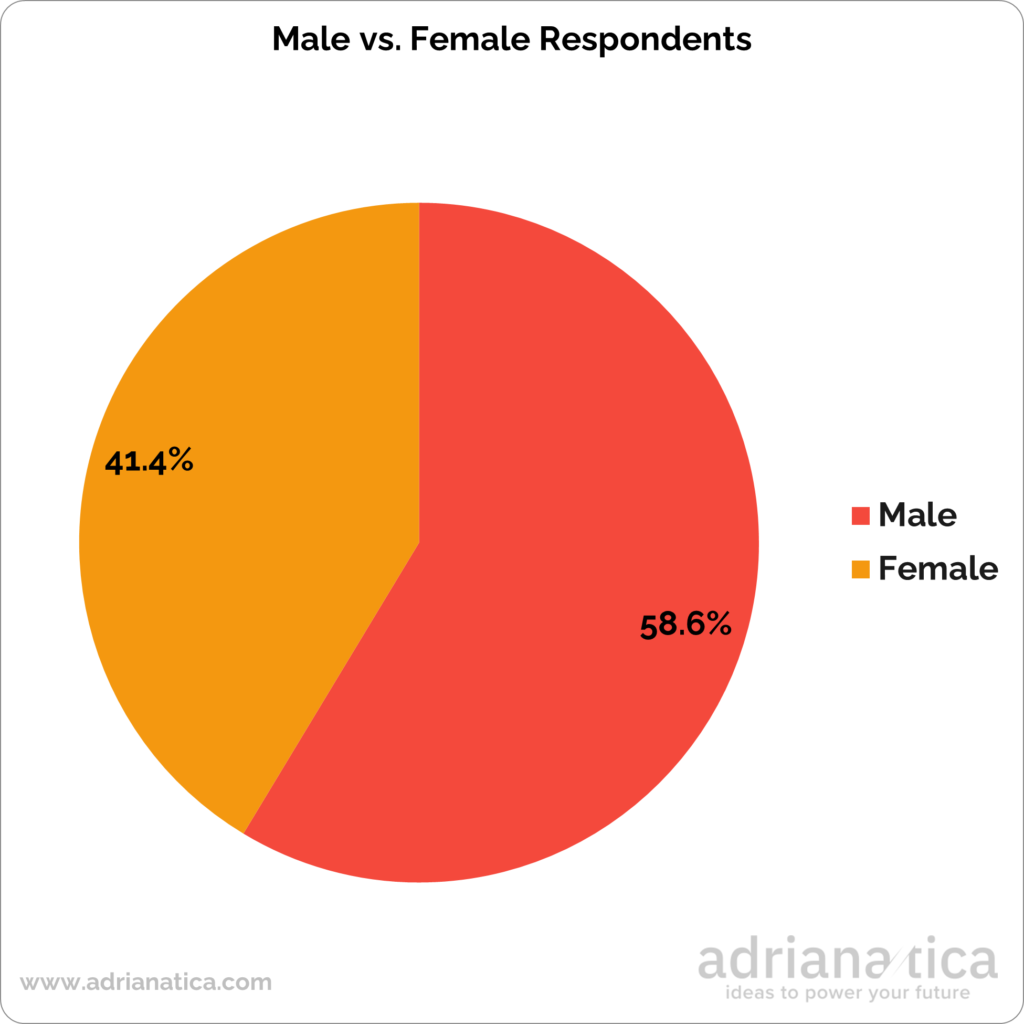
More male content writers answered my job ad. This is important, especially in an already small sample.
Why?
Because if you look at how content writing fees are broken down by gender, it may look like they are the same:
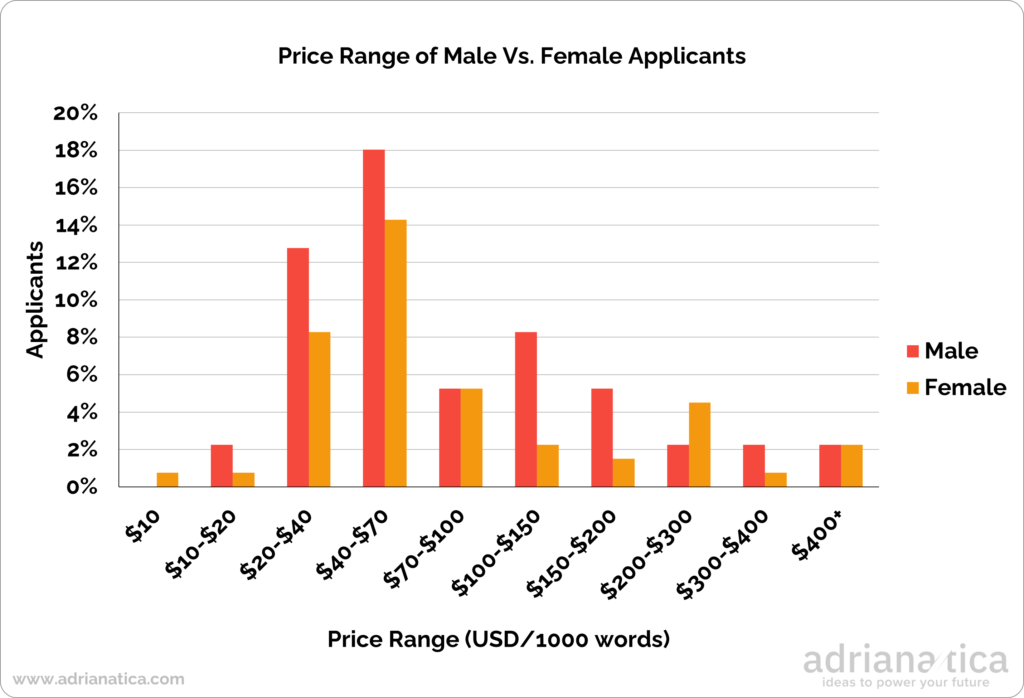
They are not, though.
I was surprised to see that for writers with up to seven years of experience, there is virtually no difference between the fees charged by male or female applicants. If you look at the chart below, you’ll notice a slight difference, but remember the small sample and the fact that more male writers filled in the form.
For the very experienced writers, however, there is a significant difference: male content writer demand roughly 35% more than their female counterparts.
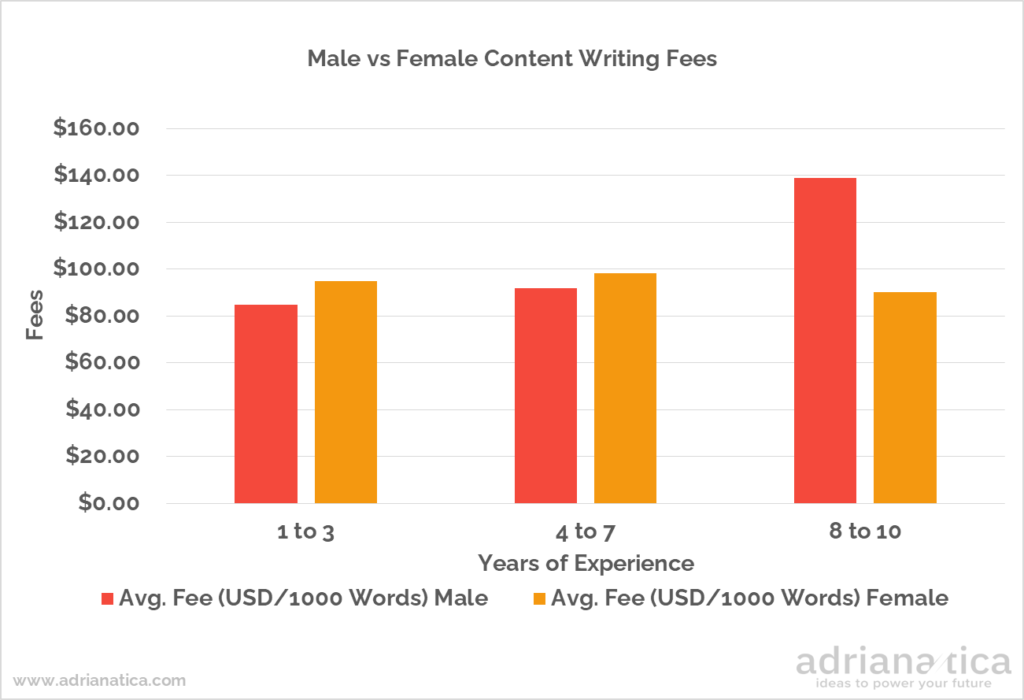
A personal observation here: I was expecting a similar difference across all categories. It’s something I got used to since I posted my first job ad. I find it encouraging that the gap is narrowing down, although it feels like there’s still some work to be done in this area.
Additional Observation that Can’t Be Quantified
There’s something I’ve noticed in the submitted forms that can’t be quantified. However, it’s also something that has popped up whenever I published a job ad. Take it with a grain of salt because I have no data to back it up, but do consider this if you’re a content writer looking for work or a company looking to hire writers.
Geography Is Responsible for the Biggest Differences in Content Writing Fees
My intake form didn’t ask writers to disclose their location (we’re open to hiring people from all over the world), just the timezone. So I have an idea where most of the applicants are located, but not the certainty I need to chart this data.
However, based on my seven years of hiring content writers, I can tell you that it’s neither experience nor gender that creates the biggest pay gaps. It’s geography.
Content writers in Europe, North America, Australia, and New Zealand demand far higher fees than those in Asia or Africa. The fees get even higher if the applicant is from a country where English is the official language.
Is this fair?
This is a very, very long talk and the answer pretty much depends on whether you think that payment should take into account the cost of living or just the writer’s skills.
Content Writing Fees Statistics: Methodology and Data
- The job ad I posed was a Google Form.
- I collected answers in two copywriting/content writing job-hunting groups on Facebook.
- The respondents are self-described content writers, copywriters, or both.
- No one was incentivized to fill in the form in any way.
- I’ve received 138 valid responses over the span of 6 months, posting the same form in the same groups twice and removing any duplicate answers.
A few caveats:
- The job ad was open to BOTH copywriting and content writing experts. In the industry, the rates for content/copywriters vary widely. One question in the form asked the candidates what their specialty was — copy or content. Most of them said “both”, so a complete delineation of content versus copywriting fees was not possible.
- The intake form did NOT ask for the applicant’s gender. We obviously don’t discriminate by gender when hiring for Idunn or Copywritech. The gender was inferred based on the applicant’s name. I don’t know if any applicants identify with a gender other than the one suggested by their name.
